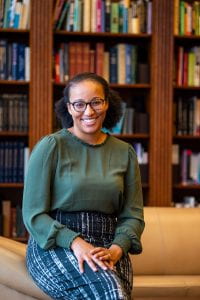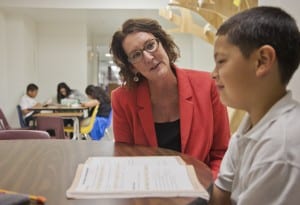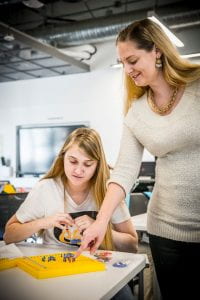 Professor Richard Duschl, a leader in SMU’s Lyle School of Engineering known for his continuing contributions to science education through research, has been elected a member of the National Academy of Education (NAEd).
Professor Richard Duschl, a leader in SMU’s Lyle School of Engineering known for his continuing contributions to science education through research, has been elected a member of the National Academy of Education (NAEd).
Duschl is the Executive Director of SMU Lyle’s Caruth Institute for Engineering Education and also has an appointment in SMU’s Simmons School of Education & Human Development in the Teaching and Learning Department.
“Induction into a National Academy representing your field of expertise is the pinnacle of achievement in one’s career,” Marc P. Christensen, dean of the Lyle School of Engineering, said. “When we recruited Prof. Duschl to lead the Caruth Institute for Engineering Education, we knew he was one of the most distinguished researchers in the field education. We are so pleased that he has been formally recognized in this way.”
Duschl has been President of NARST, the International Association for Science Education Research. He also served as director of the Division for Research on Learning at the National Science Foundation and chaired the U.S. Department of Education National Resource Center report, “Taking Science to School: Learning and Teaching Science in Grades K-8” (National Academies Press, 2007).
Before joining SMU in 2018, his past appointments included the Waterbury Chair at Penn State University, Graduate School of Education at Rutgers University, Chair of Science Education at King’s College London, Vanderbilt University, the University of Pittsburgh, Hunter College-CUNY and the University of Houston. Duschl taught high school earth science in Charles County, Md. and middle school science and math in East Lansing, Mich.
In 2014 Duschl was awarded the NARST Distinguished Career in Research Award. He served for 10 years as the editor of “Science Education,” an international journal of research and scholarship, and was editor of the Teachers College Press book series “Ways of Knowing in Science.”
Duschl is one of 22 people selected on March 11 to join the National Academy of Education.
Other new members include:
- Megan Bang, Spencer Foundation/Northwestern University
- Daryl Chubin, Independent Consultant and Founding Co-Director, Understanding Interventions
- Colette Daiute, The City University of New York, Graduate Center
- Kenneth Frank, Michigan State University
- Jonathan Guryan, Northwestern University
- Shaun Harper, University of Southern California
- Kathryn Hirsh-Pasek, Temple University
- Andrew Ho, Harvard University
- Nancy Hornberger, University of Pennsylvania
- Tyrone Howard, University of California, Los Angeles
- Kent McGuire, Hewlett Foundation
- Roberta Michnick Golinkoff, University of Delaware
- Richard Milner IV, Vanderbilt University
The NAEd advances high-quality education research and its use in policy and practice. The Academy consists of U.S. members and international associates who are elected on the basis of outstanding scholarships related to education.








